Bibliothèque
Toutes les ressources
2021 – 2040 sur 2622 résultats

Cash Transfers and HIV Prevention
Report
This paper proposes some initial principles on how to optimize HIV impacts of cash transfers, by encouraging targeting that: focuses on communities with high rates of new HIV infections, particularly acquired via sexual transmission; reduces local or community levels of economic inequalities between men...

Market Analysis for Preparedness and Development: Piloting Innovation in Guatemala
Report
This case study charts the process, successes and learning from Oxfam’s pilot joint market analysis in Guatemala 2013. One of the key lessons is that, despite the initial reluctance to market based programming approaches, a critical impact of the assessment has been increased interest from other...

Effects of the Palestinian National Cash Transfer Programme on Children and Adolescents
Report
Over the past two decades, social protection programmes have been implemented in many developing countries to reduce poverty and vulnerabilities in the face of context-specific challenges such as economic crises,inequality and exclusion, and human development deficits. The multidimensional...
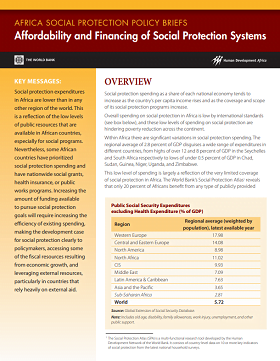
Africa Social Protection Policy Briefs – Affordability and Financing of Social Protection Systems
Report
Social protection spending as a share of each national economy tends to increase as the country’s per capita income rises and as the coverage and scope of its social protection programs increase. Overall spending on social protection in Africa is low by international standards (see box below), and these...
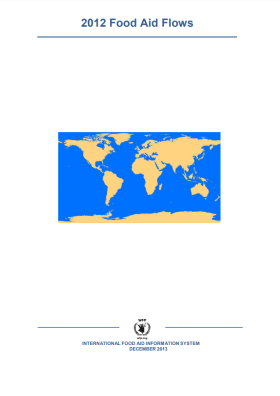
Food Aid Flows 2012 Report
Report
In 2012 global food aid deliveries totaled slightly more than 5 million mt. The World Food Programme (WFP) remains the primary means for delivering food assistance: 58 percent of global food aid was provided through WFP in 2012. Countries in Sub-Saharan Africa were the main recipients of food aid in 2012,...

Les Transferts d’Argent par Téléphonie Mobile et par IMF pour les Réfugiés Urbains à Niamey (Niger)
Rapport
Cette étude a comparé l’efficacité des transferts d’argent par téléphonie mobile et les transferts de cash par l’Institution de Micro-Finance aux réfugiés urbains à Niamey. L’étude a révélé que le mécanisme de transfert d’argent par téléphonie mobile serait plus rentable que le...

Le CALP Network Formation Niveau 2 – Module 4 – Suivi, planification et préparation aux interventions
Guides et outils
La formation niveau 2 a été développée comme une formation approfondie pour les personnes qui ont déjà de l’expérience avec les programmes utilisant les transferts monétaires (en espèces et / ou les bons d’achat) : les responsables programmes / projets de tous secteurs (sécurité...
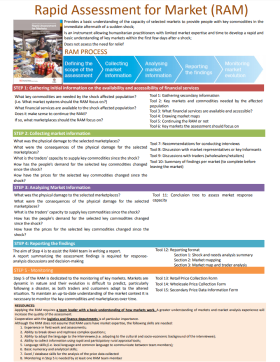
Poster – Rapid Assessment for Market (RAM)
Guidelines and Tools
This poster provides a basic understanding of the capacity of selected markets to provide people with key commodities in the immediate aftermath of a sudden shock. It is an instrument allowing humanitarian practitioners with limited market expertise and time to develop a rapid and basic understanding of...
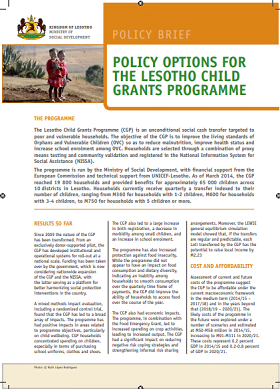
Policy brief – Policy options for the Lesotho Child Grants Programme
Policy paper
The Lesotho Child Grants Programme (CGP) is an unconditional social cash transfer targeted to poor and vulnerable households. The objective of the CGP is to improve the living standards of Orphans and Vulnerable Children (OVC) so as to reduce malnutrition, improve health status and increase school...
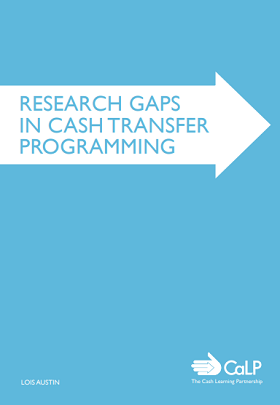
Research gaps in cash transfer programming
Report
Gathering evidence through action research is one of the ways that the CALP Network aims to improve cash transfer programming (CTP) implementation and raise awareness about CTP and its use as an appropriate and effective mechanism for emergency response. Before defining potential research topics for 2014,...
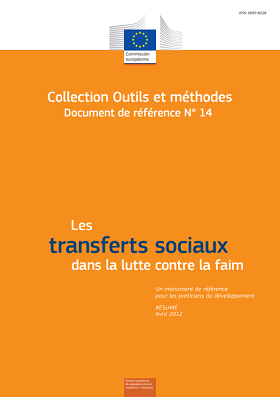
Les transferts sociaux dans la lutte contre la faim – Un instrument de référence pour les praticiens du développement – Résumé
Rapport
Le document de référence a été écrit en premier lieu pour les praticiens du développement et les administrateurs de l’aide opérant au sein des délégations de l’Union européenne et des bureaux pays des États membres. Il a pour but de fournir des connaissances de base — terminologie et...

Facteurs affectant l’optimisation des coûts des transferts électroniques dans les programmes humanitaires
Rapport
Ce travail de recherche propose une méthodologie pour évaluer les coûts et présente des études de cas détaillées sur les coûts liés à l’exécution des récents programmes faisant appel aux transferts monétaires en situation d’urgence menés au Kenya et en Somalie, s’inspirant des...
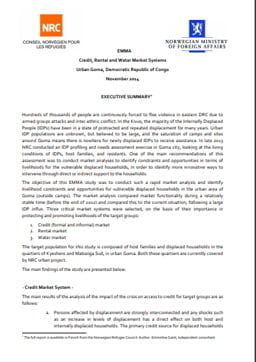
NRC – EMMA on Credit, Rental and Water Market Systems, Urban Goma, DRC, Nov 2014 – Executive Summary
Report
Hundreds of thousands of people are continuously forced to flee violence in eastern DRC due to armed groups attacks and inter-ethnic conflict. In the Kivus, the majority of the Internally Displaced People (IDPs) have been in a state of protracted and repeated displacement for many years. Urban IDP...

Market Analysis for Preparedness: The urban informal settlements of Nairobi
Report
The last few years have seen a significant change in the way humanitarian organisations approach response design. Partly spurred on by the growth in cash transfer programming and market-based programming, the practice of working through and supporting local markets is now widely considered best practice...
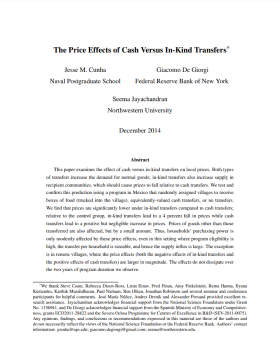
The Price Effects of Cash Versus In-Kind Transfers
Report
This paper examines the effect of cash versus in-kind transfers on local prices. Both types of transfers increase the demand for normal goods; in-kind transfers also increase supply in recipient communities, which should cause prices to fall relative to cash transfers. We test and confirm this prediction...
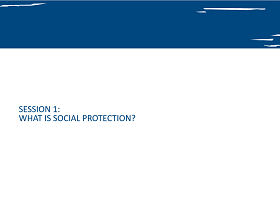
What is social protection?
Report
This presentation was made on behalf of UNICEF at the social protection framework validation meeting that took place at the Jacaranda Hotel in Nairobi, Kenya on 26 September 2014. It looks at components and dimensions of social protection, lessons from global experiences and some limitations of the...
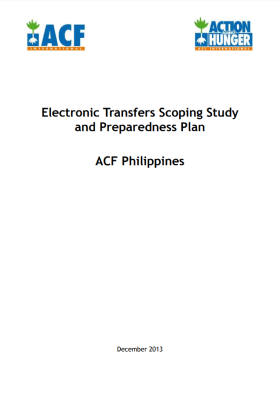
Electronic Transfers Scoping Study and Preparedness Plan
Policy paper
This piece of work was arranged by Action Against Hunger (ACF), with the intention of understanding the electronic payment services available in a minimum of two country missions and to support ACF in preparing for future humanitarian response in country and globally, with a specific focus on...
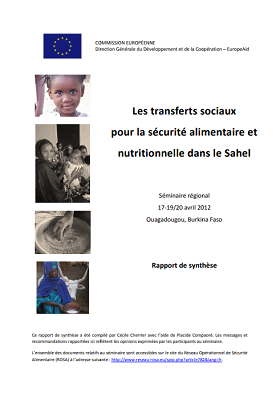
Les transferts sociaux pour la sécurité alimentaire nutritionnelle dans le Sahel – Rapport de synthèse
Rapport
« Comment assurer la mise en place, l’efficacité, la couverture et la viabilité de programmes nationaux de transferts sociaux pour la sécurité alimentaire et nutritionnelle dans le Sahel ? » Cette question était au coeur du séminaire régional organisé à l’initiative de la...
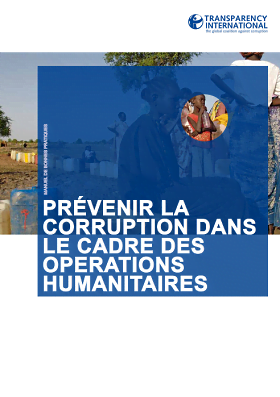
Manuel de Bonnes Pratiques: Prevenir la Corruption dans le Cadre des Operations Humanitaires
Rapport
Transparency International (TI) soutient depuis longtemps que l’impact le plus nocif de la corruption se trouve dans le détournement des ressources de base destinées aux pauvres. La corruption dans le cadre de l’aide humanitaire en est la forme la plus manifeste car elle prive les pauvres les plus...
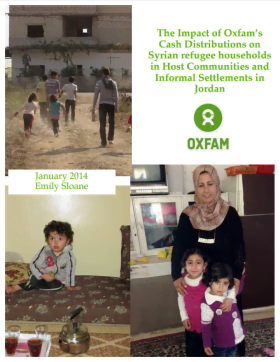
The Impact of Oxfam’s Cash Distributions on Syrian Refugee Households in Host Communities and Informal Settlements in Jordan
Report
Given the absence of viable alternatives to cash transfer programmes (CTPs) in Jordan, such programmes will certainly continue for the foreseeable future. It is crucial to review their impact to date in order to identify common issues and lessons learned and adjust programmes accordingly. The present...